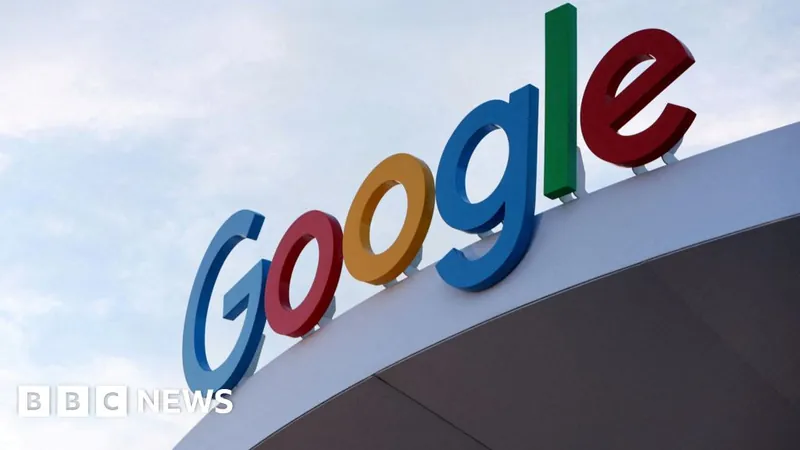
Google Outraged as DOJ Considers Breaking Up Chrome: What This Means for Users
2024-11-19
Author: Ting
In a bold move that has sent shockwaves through the tech industry, Google has expressed strong opposition to the potential sale of its flagship web browser, Chrome, warning that such a decision could severely impact consumers and businesses alike. The United States Department of Justice (DOJ) is reportedly set to present this measure to a judge on Wednesday, according to Bloomberg's sources.
This latest development follows a ruling in August by Judge Amit Mehta, who determined that Google maintains an online search monopoly. The judge is now deliberating on possible remedies and penalties that could be imposed on the tech giant. While the DOJ has yet to issue a formal comment on the matter, Google has voiced its discontent, labeling the proposal as a part of the DOJ's "radical agenda."
Lee-Anne Mulholland, a Google executive, highlighted the potential consequences of government intervention, stating, "The government putting its thumb on the scale would harm consumers, developers, and American technological leadership at precisely the moment it is most needed."
Chrome remains the world's leading web browser, commanding an impressive 64.61% of the global market share as per Similarweb's October data. In tandem, Google’s search engine dominates nearly 90% of the global search market, according to Statcounter. As the default search engine on Chrome and various smartphone browsers, including Safari on iPhones, Google’s hold on the market is substantial.
Judge Mehta previously referred to the default search engine setting as "extremely valuable real estate," emphasizing that transitioning to a competing product would require substantial financial resources, thus making competition exceedingly difficult.
As the DOJ prepares to unveil its final proposed remedies, it has floated the idea of breaking up Google. This could involve restricting Google's ability to leverage products like Chrome, Play Store, and Android to bolster its search engine dominance. In response, Google has firmly opposed the notion of "splitting off" parts of its business, asserting that it could "break them."
The implications of this ruling extend beyond corporate structure; Google's financial health is also at stake. With recent quarterly results showing a 10% uptick in revenues for its search and advertising sectors—reaching $65.9 billion—Google's leadership, including CEO Sundar Pichai, has noted that millions are now accessing their AI search tools.
Investors are watching closely as uncertainties loom over Google's future strategies and market position. With the tech landscape ever-evolving, this case could set significant precedents that might reshape not only the market but the very nature of technology use and online competition.
Stay tuned for more updates on this unfolding saga—what could this mean for your everyday internet use?




 Brasil (PT)
Brasil (PT)
 Canada (EN)
Canada (EN)
 Chile (ES)
Chile (ES)
 España (ES)
España (ES)
 France (FR)
France (FR)
 Hong Kong (EN)
Hong Kong (EN)
 Italia (IT)
Italia (IT)
 日本 (JA)
日本 (JA)
 Magyarország (HU)
Magyarország (HU)
 Norge (NO)
Norge (NO)
 Polska (PL)
Polska (PL)
 Schweiz (DE)
Schweiz (DE)
 Singapore (EN)
Singapore (EN)
 Sverige (SV)
Sverige (SV)
 Suomi (FI)
Suomi (FI)
 Türkiye (TR)
Türkiye (TR)